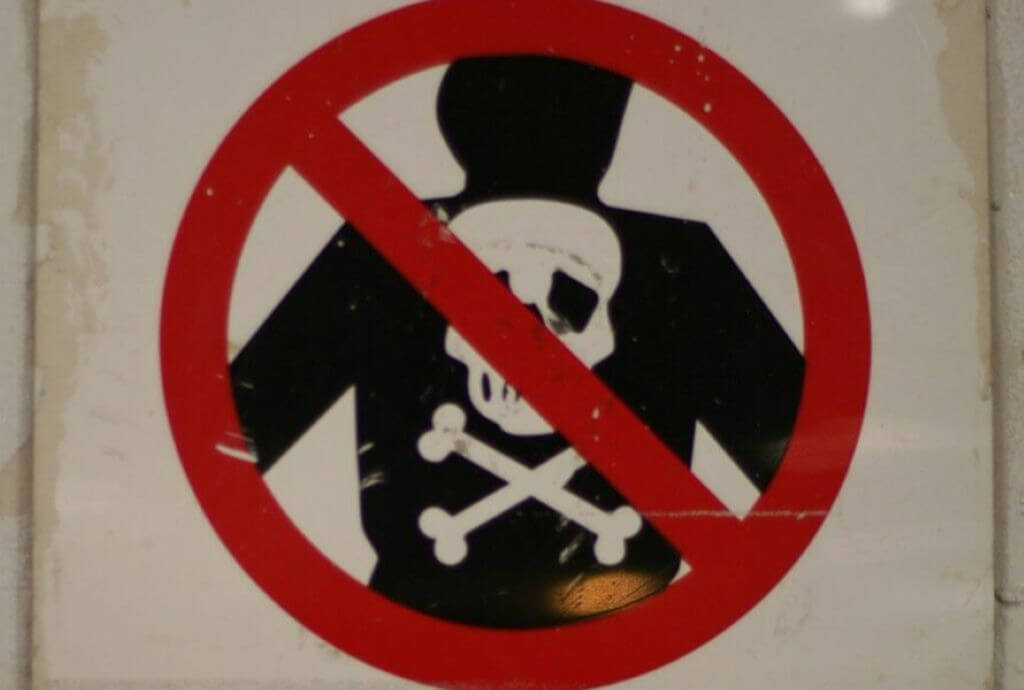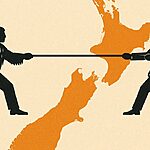In brief
- It’s surprising how little debate there is in the media over Treaty of Waitangi arguments, such as co-governance.
- Perhaps it’s something to do with the fact that most journalists lean left and agree with the Government’s left leaning interpretation.
- Large sums of Government money for aligned media probably also helped shape coverage (or lack of it).
There is an absence of debate about the Treaty in the media
The Treaty of Waitangi is a contentious issue in New Zealand. It’s surprising, then, that pollster David Farrar says debate on the “hugely important issue of the role” of the Treaty is almost entirely absent from most of the country’s media.
Let’s take a look at a few reasons why this might be.
Journalists don’t represent New Zealand’s political diversity
Massey University’s Worlds of Journalism Study, 2022, found a 5:1 ratio of left-leaning journalists to right-leaning journalists. One fifth said their political views are hard or extreme left compared to only 1% said their political views are hard or extreme right.
The 2020 election survey by Auckland University found less than a third of respondents identified as left of centre, while over 40% identified as right of centre.
Farrar says:
“It has become very fashionable for media companies (and non-media companies) to have diversity statements, expressing their desire to have newsrooms that reflect the ethnic diversity of New Zealand. It would be nice if, one day, they also expressed a desire to have newsrooms that reflect the political diversity of New Zealand.”
The media industry needs money
According to the Ministry for Culture and Heritage – Manatū Taonga, NZ’s media sector employs around 14,000 people and puts about $4.7 billion each year into NZ’s economy. But it’s bleeding money. The internet has been a game changer, leaving many media outlets with chronic funding problems.
Murray Kirkness, chief content officer of the NZ Herald, says one of the main factors for him is maintaining commercial viability. He thinks it was a critical error by the industry to make content free online.
Kirkness admits COVID, and especially the daily press conferences at the time, was a huge boost to audience numbers for the Herald.
No doubt the $55 million Public Interest Journalism Fund (PIJF) must have come as some relief. However, the funds came with strings attached. Namely, it requires recipients to subscribe to many of the Government’s views on the Treaty of Waitangi.
According to the Ministry of Culture and Heritage, the Government also supported many media outlets by purchasing advertising in advance to provide cashflow during the COVID pandemic.

A Curia Media Funding Poll, in March 2022, found less than a quarter of New Zealanders supported the PIJF. The same poll found more than half New Zealanders of all political stripes believe government funding undermines media independence.
Unconscious bias
Farrar discusses the unconscious bias of many left-leaning journalists, which, in regards to the Treaty, is to agree with the Government’s interpretation. Mark Jennings, co-editor of Newsroom, may be a good example.
Jennings says there was no pressure on his organisation to report a certain way on the Treaty, but also stated Newsroom had a philosophy that aligns with the Government’s view of the Treaty.
Conclusion
In order to gain largely favourable coverage (or at least avoid criticism) of the Government’s contentious Treaty of Waitangi positions, large sums of money through the PIJF (and ad purchases) were available to help newsrooms muddle through the dog days of the pandemic.
Regardless, it appears journalists were largely on board ideologically to begin with.



















